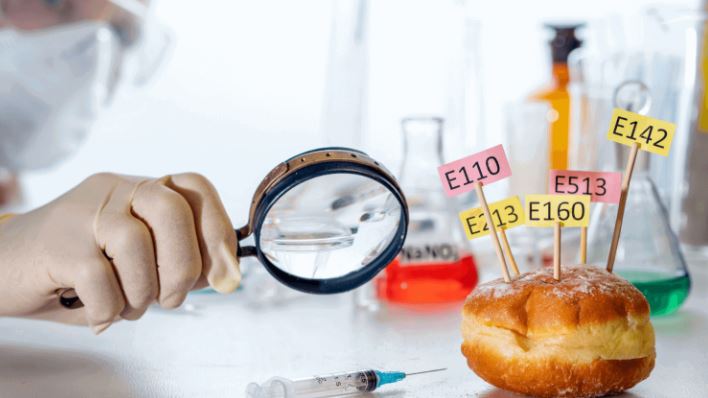Food additives are substances added to food products to enhance their flavor, appearance, texture, or preservation. They play a crucial role in modern food production, allowing for longer shelf life, improved taste, and more consistent quality. However, the use of additives also raises questions about their safety, potential health effects, and the overall quality of the food we consume. This post explores the types of food additives, their functions, and their implications for health and nutrition.

Food Additives: What You Should Know
Types of Food Additives
Food additives fall into several categories, each serving different purposes:
- Preservatives: Preservatives prevent spoilage and extend the shelf life of food products. Common preservatives include sodium benzoate, sorbic acid, and nitrates. While these additives help keep food safe and fresh, some people are concerned about their potential health effects, such as allergic reactions or links to certain health conditions.
- Colorants: Colorants, or food dyes, are used to enhance the appearance of food, making it more appealing. Synthetic dyes like Red 40 and Yellow 5 are commonly used, but natural colorants, such as beet juice or turmeric, are also popular. Concerns about synthetic dyes include potential allergic reactions and behavioral effects, particularly in children.
- Flavor Enhancers: Flavor enhancers improve the taste of food without altering its inherent flavor. Monosodium glutamate (MSG) is a well-known flavor enhancer used in many processed foods. While generally recognized as safe, some individuals may experience sensitivities or adverse reactions to MSG.
- Emulsifiers: Emulsifiers help mix ingredients that usually don’t combine well, such as oil and water. Common emulsifiers include lecithin and polysorbates. These additives are essential for creating smooth textures in products like salad dressings and sauces.
- Sweeteners: Sweeteners are used to add sweetness to food and beverages. They can be natural, such as honey or maple syrup, or artificial, like aspartame and sucralose. While sweeteners provide a low-calorie alternative to sugar, some artificial sweeteners have been linked to health concerns and require cautious use.
Safety and Regulation
Food additives are regulated by government agencies to ensure their safety and efficacy. In the United States, the Food and Drug Administration (FDA) oversees the approval and use of food additives. The European Food Safety Authority (EFSA) performs a similar role in Europe. These agencies evaluate the safety of additives through scientific research and set limits on their usage to protect consumer health.
Despite stringent regulations, concerns about certain additives persist. For instance, some people may have sensitivities to specific additives, leading to adverse reactions. Additionally, there is ongoing debate about the long-term health effects of consuming certain additives in large quantities.
Health Implications
The health implications of food additives can vary depending on the specific additive and the individual’s sensitivity. While most additives are considered safe when used within recommended limits, some may cause allergic reactions, digestive issues, or other adverse effects in sensitive individuals. It is important for consumers to be aware of the additives in their food and to read ingredient labels carefully.
Additionally, research continues on the potential long-term effects of certain additives. For example, some studies suggest that artificial sweeteners may impact gut microbiota or metabolic health, though more research is needed to fully understand these effects.
Environmental and Ethical Considerations
The production and disposal of food additives also have environmental and ethical implications. For instance, the production of synthetic additives often involves chemical processes that may impact the environment. Additionally, some additives are derived from animal sources, raising ethical concerns for those following vegetarian or vegan diets.
Sustainable practices and transparent labeling are becoming increasingly important as consumers seek more information about the origins and impacts of the food additives used in their products. Manufacturers are responding by exploring natural alternatives and adopting eco-friendly production methods.
Conclusion
Food additives play a vital role in modern food production, enhancing flavor, texture, and shelf life. While they contribute to the convenience and appeal of processed foods, it is essential to understand their types, functions, and potential health and environmental impacts. By staying informed about food additives and making conscious choices, consumers can better manage their dietary health and support more sustainable food practices.




